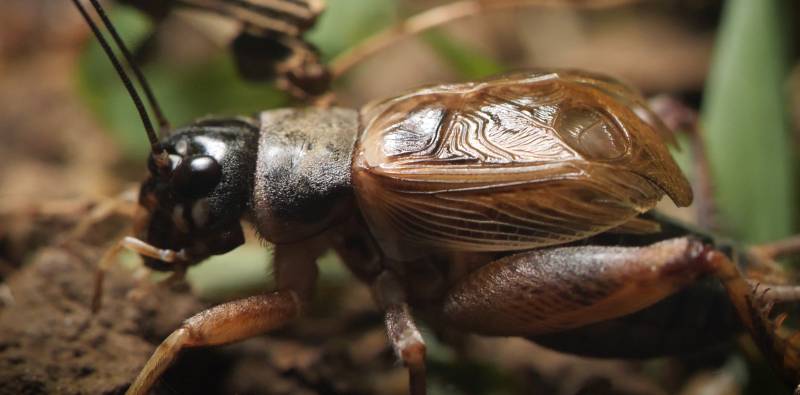After five years and more than 100 episodes, KQED's science series Deep Look has established itself as one of PBS's most popular web series. Its skillfully crafted four-minute videos about tiny animals and plants regularly get millions of views and have won numerous awards, including three Northern California Emmy awards and a Webby. The series kicks off a new year with new episodes that focus up-close on the mechanics of a cricket chirp, flies that give birth to fully-formed offspring, the little mites that keep Madagascar hissing cockroaches clean and the extraordinary jump-kick of the cute kangaroo rat.
Launched in October 2014, the series is presented on the PBS Digital Studios YouTube network and has more than 1.3 million Deep Look subscribers in addition to over 180 million lifetime views, making it KQED’s most successful web video production. Deep Look's videos are shot in ultra-HD (4K) and use macro cinematography and video microscopy to reveal small, hidden worlds in nature. Deep Look releases its videos twice a month and will produce 20 new videos this year.
"In producing for our upcoming sixth year, we're already pushing ourselves to explore more challenging macro filmmaking techniques, stirring music, humorous and thrilling writing, illuminating graphics and vivid editing.” says Craig Rosa, series producer. “We can't wait to share these episodes with our fans!"
The unusual animals and their evolutionary tricks that are featured in the first four Deep Look videos of the year are:
• January 14: Cricket Chirp - Male crickets have a different song for every occasion: to advertise their fitness, woo a mate or keep their rivals away. So how do they make all those different chirps?
• January 28: Tsetse Fly Mothering - A female tsetse fly pushes out a squiggly yellowish larva almost as big as herself, which she nourished with large amounts of milk. To make all that milk, she sucks lots of blood from cattle in sub-Saharan Africa, with devastating results.
• February 11: Madagascar Hissing Cockroach - Most people run to buy a can of bug spray or to call the exterminator when they see cockroaches scurrying around. But not all roaches are pests. Some are pets – like the Madagascar hissing cockroach -- which comes with its own personal cleaning crew.
• February 25: Kangaroo Rat Karate - They may be the cutest ninjas on Earth, but they will not hesitate to kick a venomous snake in the face faster than you can blink. Hyper-sensitive ears and super-sized legs allow them to leap right out of harm’s way.
Besides producing stunning videos, the series is also spearheading KQED’s first foray into crowdfunding with a Patreon campaign that has over 400 super-fans who contribute on a monthly basis. Deep Look recently reached its funding goal of $2,000 a month, and as a result, will be sending its producers to Oaxaca, Mexico on a special filming expedition this spring.
